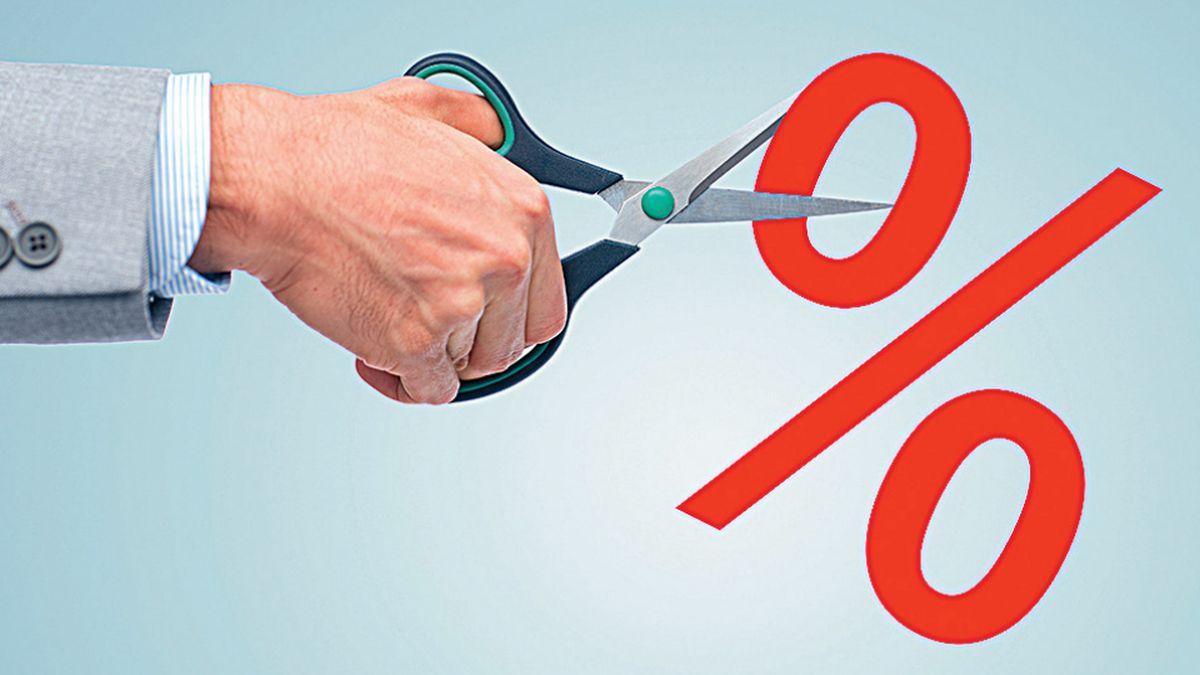As he had anticipated, Minister of Economy, Luis Caputothis Monday, September 2, it was made official, through the publication of the corresponding regulations in the Official Gazette, the reduction of the PAIS Tax from the current 17.5% to 7.5% and the market is already measuring its impact on inflation, tax collection, Central Bank (BCRA) reserves and the dollar gap.
The Executive Branch published this Monday, September 2, the Decree 777/202, which provided for the reduction in the PAIS tax rate, thereby fulfilling the promise he had made during the discussion of the Basic Law, when he anticipated that he would activate this reduction if Congress approved this law. The measure will undoubtedly impact decisive variables of the economy.
It is worth remembering that The main objective that the Government declared with this measure is to lower inflation and achieve a 4% increase in the rate of price increases, a goal that the market sees as difficult to achieve, but which, with this decision, may become real due to the impact it may have on the price of imported items and supplies.
The effect on inflation and collateral risks
However, this will not be the only impact that this measure will have on other financial variables. It happens that, as explained Pedro Gaite, chief economist at the Foundation for Development Research (FIDE), “In terms of inflation, it could be positive if the prices of imported goods fall” and that it is a measure aimed at normalizing the functioning of the economy, which he considers a necessary issue, but warns that, “given the number of macroeconomic imbalances that exist, its implementation could be detrimental because the problem is the general sustainability of this exchange rate regime, mainly, the “crawling” of 2%.”
In the same sense, Eco Go economist Lucio Garay Méndez He points out that “eliminating the PAIS tax is a big step towards exchange rate normalization and prior to lifting the restrictions.” He also comments that there is a possibility that some prices will fall, given that the tax would no longer be paid and that is an additional downward push that inflation may have, due to a fall in the value of imported goods. However, he warns that it represents 5% of the collection and a higher percentage of the nation’s income, so if the other taxes are not recovered, the Government would be forced to further adjust public spending.
Fiscal impact: lowering the PAIS tax in a recessionary context
In that sense, Gaite points out that “the strongest impact will be in revenue collection because the PAIS Tax represents 6% of the total collection and removing it or reducing it would further strain the fiscal situation in a context in which taxes linked to economic activity are seen to be falling sharply.”
And as he points out, Aldo Abram, director of Freedom and Progress“Raising the PAIS tax could cost the state around $2 billion and that will put strong downward pressure on tax collection.”
On the income side, there is also a complex situation because the activity is in a recessionary period. In this sense, Economist and director of Epyca Consultores, Martín Kalospoints out that “the Government delayed the exit of the PAIS tax because it expected a recovery in revenue through another means.” That is why it is doing so now, after the approval of the money laundering, the moratorium and the Regime of Incentive to Large Investments, but the problem is that “Activity will continue to be depressed in the domestic market”.
Kalos points out that The only sectors that will continue to grow are the agricultural export sector and the mining and hydrocarbon sectors.. “In that context, what will happen is that it will be very difficult to compensate for what will stop being collected with the PAIS taxalthough some of the money laundering and the restitution of profits and the fuel tax will help to compensate,” he says.
It will be difficult for the BCRA to buy dollars
Another delicate point that is at risk with the reduction of the country tax are the BCRA reservesGaite points out that the impact is also “worrying” because Argentina’s main problem is the shortage of dollars and the exchange rate is lagging. “The reduction of this tax will further appreciate the import exchange rate and that will put more pressure on the Central Bank’s dollar foreign exchange power“, he details.
Abram points out, on the other hand, that this decision “will boost imports and will make the process of collecting dollars more complex for the BCRA.” Because, as explained by Eco Go economist Lucio Garay Méndezwhile moving in that direction “would reveal what the true demand for imports is, given that today they are distorted because the tax increases the price, on the other hand, “by lowering the price of the currency for importers, the demand for imports increases demand for US dollar bills and that means that the Government accumulates fewer reserves.”
This is a worrying fact in the face of some complicated years in terms of foreign currency maturities and, even more so, without the possibility of refinance the debt with a closed external market.
It is worth mentioning that, on the last day of August, the BCRA sold US$238 million in the foreign exchange market and It was the Biggest sale since October 10, 2023The strong outflow of foreign currency was mainly due to the demand for a payment of the Buenos Aires province’s dollar-denominated debt, due on September 1.
However, the demand for dollars by importers moderated during August due to the imminent reduction of the PAIS taxwhich was finally confirmed this Monday, and that allowed the BCRA to add foreign currency despite everything: it accumulated purchases for US$380 million and increased gross reserves in US$315 million during the monthHowever, the outlook for September, with the start of the tax reduction, appears more complicated.
Dollar and tourism unchanged
The Government decided not to change the rate applied to the savings dollar and credit cards. Gaite explains that “they are not going to touch it” because she warns that, if they do, it would be risky because “it would encourage the outflow of dollars through that route, which is something that has been seen with the rise in the exchange rate” and, she anticipates that, if the gap increases and the financial dollar approaches the tourist dollar, the situation would worsen.
Along the same lines, Rodriguez points out that there would be a risk of worsening the tourism deficit, In short, it will deepen the weakness of the external sector, further postponing both the objective of accumulating reserves and the situation of strength to get out of the currency controls without any problems.
On the other hand, regarding the dollar, Abram believes that “It will not change the Government’s monetary strategy”“, although he says that “it is possible that it plays in favor in terms of risk perception and helps in terms of the evolution of the parallel dollar due to a question of expectations.
Reduction of the PAIS tax: a risky move by Caputo
So, Economist and director of MyR Consultores, Fabio Rodríguezsummarizes that there are three key areas in which the PAIS Tax will have a strong impact: the prosecutor, due to the loss of resources; inflation, due to a decrease in the price of dollar-dependent goods, and the reserves of the BCRA.
“I think that They take the measure with the anti-inflationary objective as a key axis because they aim to have the cheapening of the dollar for imports“, he points out. And he believes that the Government “is betting on being fiscally neutral due to improved activity and greater resources, plus some money laundering,” diagnoses the analyst.
At this point, however, he warns that they underestimate the impact on reserves and points out that it must be taken into account that “The ratio of paid to accrued imports will rise significantly in October“.
Source: Ambito




